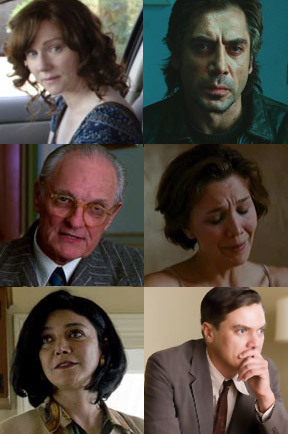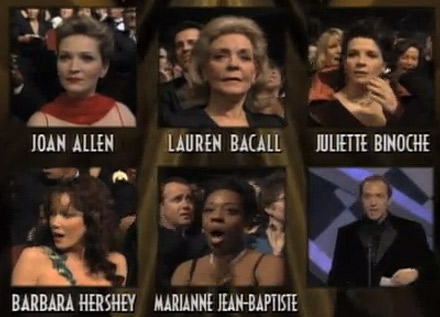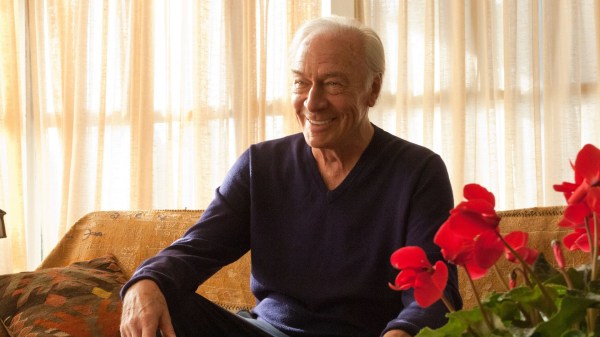Burning Questions: How Does One Rank An Almost Masterpiece?
 Monday, January 2, 2012 at 3:41PM
Monday, January 2, 2012 at 3:41PM  Michael C. here with a question I can't stop turning over in my mind.
Michael C. here with a question I can't stop turning over in my mind.
After finalizing my list of the best movies of 2011 I experienced a powerful surge of cinephile guilt when I realized Joe Cornish’s fantastically goofy Attack the Block enjoyed a healthy place on the list while Malick’s The Tree of Life was nowhere to be seen. Certainly this was an unforgivable lapse of taste, if not a dereliction of my duties as a film writer. Tree of Life is about nothing less than - to borrow a phrase from Douglas Adams - life, the universe and everything. Even if I had gripes with Tree and thought it only reached its potential in fits and starts, shouldn’t laying a fingertip on such greatness guarantee it a spot? If Olympic athletes can be graded according to degree of difficulty, why not films?
The question, simply put, is how does one rank a flawed masterpiece?
If, by the way, you consider Malick's magnum opus an unqualified success, if you had a religious experience watching butterflies land on Jessica Chastain, then feel free to substitute the name Melancholia, Shame, Margaret or whichever hugely ambitious endeavor you felt stayed stubbornly Earthbound despite its attempts to reach for the stars. But for me, Tree is the one I wrestle with.
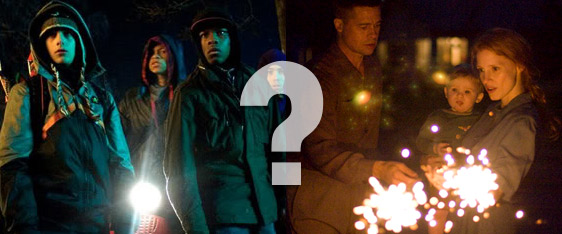
One problem with giving points for unfulfilled ambition is that it reinforces the idea that certain movies are superior to others in their very conception. This is the same lazy thinking that leads thudding Oscar bait to be nominated over exciting genre fare year after year. Frost/Nixon is history, Dark Knight is kid stuff. Nominate Frost/Nixon. Ideally both Attack the Block and The Tree of Life start with the same blank slate.
Of course, the real dilemma is not unfulfilled ambition but those fleeting moments when a film earns all that hyperbolic praise. It would be irresponsible to ignore that Tree of Life frequently presents images that stop the heart and contains stretches that are just about flawless. But those moments come married to endless minutes of Sean Penn stumbling over rocks. Material that felt like Malick cut it down just enough to lose all meaning but kept it in to assure us that it had a purpose when he started. In the end, I was overwhelmed with admiration but my spirit remained curiously unstirred. Wouldn’t the professional thing be to chalk that up to my own problem and rank Tree highly because I recognize the film's potential to move others?
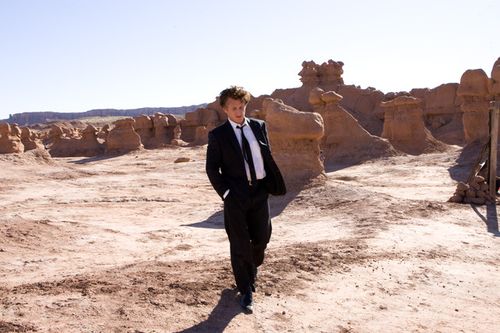 Sean Penn, stumbling around.
Sean Penn, stumbling around.
I don’t think so. If there is a benefit to the questionable practice of ranking artistic achievements against each other it is to level the playing field between the grand apples and the quirky oranges. What is owed to Malick’s achievement is respect and careful consideration, not genuflection. If in 2011 the film that made the strongest impression on me was the one with furry black aliens with bioluminescent blue teeth then I have to stand up and say so, even if that makes it appear that I have the critical acumen of a 12 year old boy on a sugar high.
Because when you get down to it all movies from Kubrick and Tarkovsky down to Babe: Pig in the City are after the same thing: a lasting connection with the audience. The test of time is going to be merciless to those films that almost but did not quite achieve greatness, so we may as well be just as merciless in the present. Singin' in Rain was not made with an eye for the list of all-time greats, but there it sits while grand almost-masterpieces like Lost Horizon fade with each year. I would take any random Daffy Duck cartoon over Doctor Zhivago. And let's not forget: In 1998 it wasn't exactly fashionable for a critic to rank a shaggy mystery about a pot-addled bowler above Malick’s Thin Red Line. Yet which of those two films spawned a religion?
Feel that I am being way too glib with a cinematic masterpiece? Have another example of cinematic emperor's new clothes that needs to be mentioned? Let me know in the comments. You can follow Michael C. on Twitter at @SeriousFilm or read his blog Serious Film





